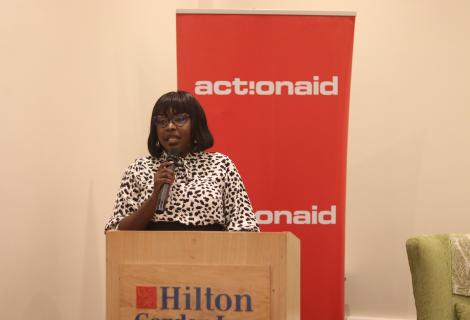AAIU, Legislators call on government not to sign the Energy Charter Treaty

On 25 July, ActionAid International Uganda(AAIU) hosted a high-level meeting with legislators from Uganda, Kenya, some CSOs, and ActionAid Kenya to discuss bilateral investment treaties focusing on the Energy Charter Treaty.
The Energy Treaty Charter (ECT) is a legally binding multilateral instrument that promotes international cooperation in the energy sector, including investment protection, liberalization of trade, freedom of transit, dispute settlement, and environmental aspects. It was signed in 1994 and entered into legal force in 1998.
During the convening, the participants stood united in their call on the government not to sign the treaty, given its negative impact. This unified front underscores the strength of the opposition.
Munduru Mercy Grace, the Head of Programs and Fundraising at ActionAid International Uganda (AAIU), noted that "the Energy Charter Treaty exists to protect the interests of foreign investors."
The Honourable Christine Kaaya highlighted the treaty's negative impact on promoting fossil fuels, a significant driver of climate change.
"Globally, we are looking at reducing fossil fuels. The Energy Charter
The treaty does not highlight the type of renewable energy they will use. Much of it is fossil fuel," said Honourable Kaaya
Kenyan Senator Honourable Okiya Omtatah pointed out the threat of the treaty to countries in the Global South. "When I look at this treaty (Energy Charter Treaty), it is a fraud, sneaked in concealment. It is not good for people in the Global South. The challenge is the caliber of negotiators we send to negotiate on our behalf, "said Hon. Okiyah Omtatah.
The one-day event featured a panel discussion involving CSO representatives and Ugandan and Kenyan legislators who spoke in unison against the treaty.
Honorable Emmanuel Otala emphasized, "Uganda is rich in energy resources, such as Lithium, oil, and uranium. However, treaties like the Energy Charter Treaty could potentially keep us underdeveloped due to bureaucratic resource utilization." This highlights the gravity of the situation.
ActionAid International, through the Fair Green and Global project, continues to bring together different stakeholders to raise awareness of the negative implications of the Energy Treaty Charter.